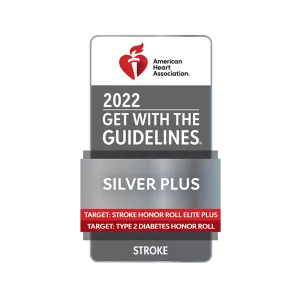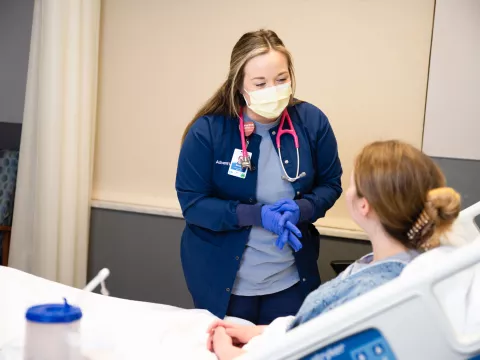Award-Winning Stroke Care
-

The Joint Commission
Acute Stroke Ready Hospital CertificationAdventHealth Murray has earned The Joint Commission’s Gold Seal of Approval® for Acute Stroke Ready Hospital Certification by demonstrating continuous compliance with its performance standards. The Gold Seal is a symbol of quality that reflects a health care organization’s commitment to providing safe and quality patient care. The Acute Stroke Ready Hospital Certification recognizes health care organizations that provide clinical programs across the continuum of care for stroke. The certification evaluates how organizations use clinical outcomes and performance measures to identify opportunities to improve care, as well as to educate and prepare patients and their caregivers for discharge.
-

American Heart Association
Target Stroke Elite Silver Plus
Get With The Guidelines® Stroke Quality Achievement AwardAdventHealth Murray has received the American Heart Association’s Target Stroke Elite Silver Plus Get With The Guidelines® - Stroke Quality Achievement Award for our commitment to ensuring stroke patients receive the most appropriate treatment according to nationally recognized, research-based guidelines, ultimately leading to more lives saved and reduced disability.
-

Georgia Department of Public Health Office of EMS and Trauma
Remote Treatment Stroke CenterAdventHealth Murray has been designated as a Remote Treatment Stroke Center by the Georgia Department of Public Health Office of EMS and Trauma. This designation recognizes AdventHealth Murray’s performance in providing specialized, high-quality care to achieve the best possible outcomes for stroke patients.
Check Out the Latest News
-
 Blogs
BlogsFirst Class Care from the Heart
How a Small-Town Hospital Became Recognized as One of the Top in the Nation

